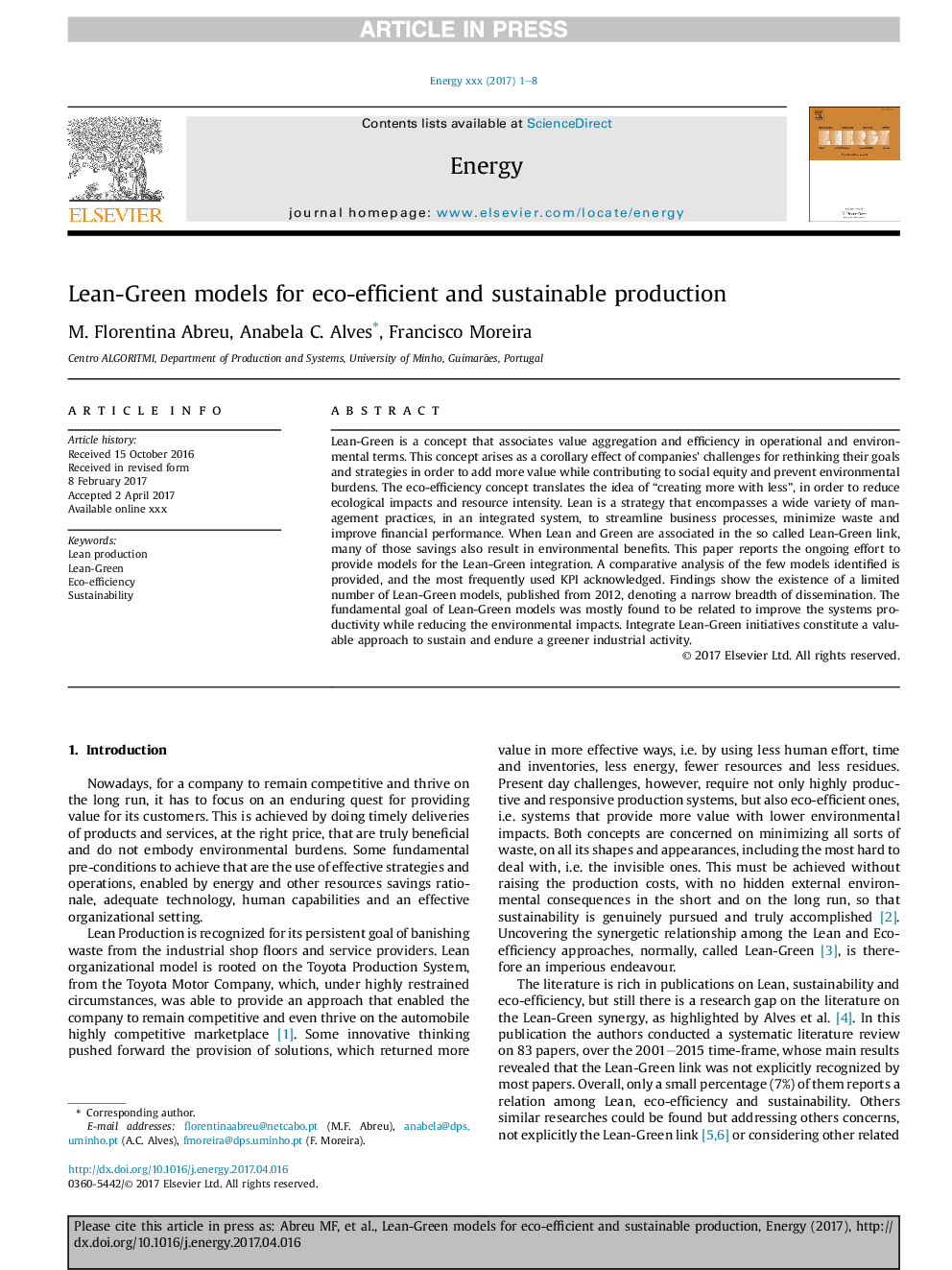| Article ID | Journal | Published Year | Pages | File Type |
|---|---|---|---|---|
| 8072796 | Energy | 2017 | 8 Pages |
Abstract
Lean-Green is a concept that associates value aggregation and efficiency in operational and environmental terms. This concept arises as a corollary effect of companies' challenges for rethinking their goals and strategies in order to add more value while contributing to social equity and prevent environmental burdens. The eco-efficiency concept translates the idea of “creating more with less”, in order to reduce ecological impacts and resource intensity. Lean is a strategy that encompasses a wide variety of management practices, in an integrated system, to streamline business processes, minimize waste and improve financial performance. When Lean and Green are associated in the so called Lean-Green link, many of those savings also result in environmental benefits. This paper reports the ongoing effort to provide models for the Lean-Green integration. A comparative analysis of the few models identified is provided, and the most frequently used KPI acknowledged. Findings show the existence of a limited number of Lean-Green models, published from 2012, denoting a narrow breadth of dissemination. The fundamental goal of Lean-Green models was mostly found to be related to improve the systems productivity while reducing the environmental impacts. Integrate Lean-Green initiatives constitute a valuable approach to sustain and endure a greener industrial activity.
Related Topics
Physical Sciences and Engineering
Energy
Energy (General)
Authors
M. Florentina Abreu, Anabela C. Alves, Francisco Moreira,
